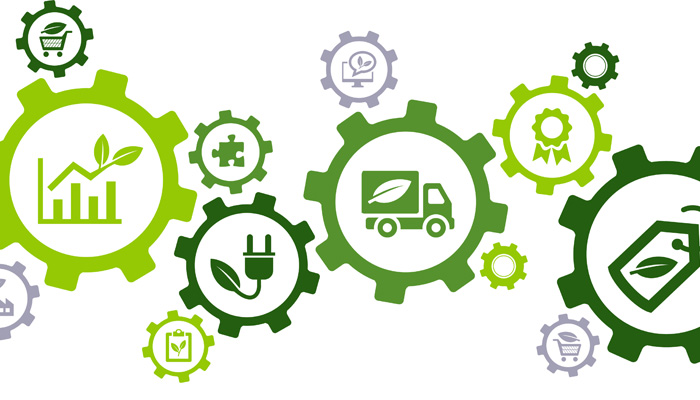
In a world where environmental consciousness is top of mind, businesses across industries are striving to implement eco-friendly practices. The packaging industry, in particular, plays a pivotal role in minimizing environmental impact. ProMach’s product brand, Matrix is an example of a company dedicated to flexible packaging solutions for customers with sustainability goals.
Flexible packaging, including formats such as pillow bags, gusseted bags, stand-up pouches, stick packs, and others, has surged in popularity among consumer product goods manufacturers for several reasons. One driver is the versatility and adaptability that flexible packaging offers. These materials are highly customizable, allowing manufacturers to tailor packaging to meet specific product requirements. The flexibility in design and size ensures that a diverse range of products, from snacks to liquids, can be efficiently and securely packaged, meeting the demands of an evolving market.
Other considerations such as space efficiency, minimizing transportation costs, and lowering carbon footprint address logistical challenges for manufacturers. And the consumer appeal of flexible packaging plays a role in its widespread adoption, as well. Stand-up pouches, for instance, offer convenience and ease of use, featuring resealable zippers or spouts that enhance product accessibility and prolong freshness. The modern consumer on the lookout for on-the-go options would appreciate the portability and user-friendly attributes of flexible packaging. The visual appeal of these pouches also provides an excellent platform for branding and marketing efforts, contributing to increased shelf visibility and consumer engagement.
Sustainability in Flexible Packaging
ProMach product brand Matrix is a leader in manufacturing Vertical Form, Fill, Seal (VFFS) machines, pre-made pouch, stickpack, and sachet systems. They have developed innovative packaging machinery that aligns with the demands of the flexibles industry.
One of the key features that sets Matrix apart is their focus on compact, space-saving machinery. Their machines boast small footprints, making them an efficient choice for businesses looking to optimize their production floors while minimizing resource consumption. Additionally, some Matrix machines can run a diverse range of green films, including compostable, recyclable, and paper options. This flexibility allows customers to select materials that align with their sustainability goals and cater to an environmentally conscious consumer base.
The Matrix Mercury vertical form-fill-seal machine excels in efficiently processing compostable and recycled films. The Matrix MVC-300 (Morpheus) features a standard AutoPro™ programming technology, which reduces waste and excess bags during changeovers by up to 50%, and both machines have a compact footprint.
“Our team works closely with our customers to deliver packaging systems that align with their sustainable goals, and we actively contribute by minimizing our machine footprints and reducing waste during changeover,” says Marc Wolf, VP and General Manager of Matrix. “We don’t just build machines, we forge sustainability partnerships, and empower our customers helping them to make choices for a brighter, greener future.”
The Importance of Compostable Packaging
Unlike traditional plastics, compostable materials break down naturally, returning valuable nutrients to the soil. Compostable packaging material is crucial in addressing the environmental challenges associated with traditional single-use plastics. One of the primary advantages of compostable packaging lies in its ability to break down into natural elements, such as water, carbon dioxide, and organic matter, through the process of composting. Unlike conventional plastics that can persist in the environment for hundreds of years, compostable materials decompose relatively quickly, reducing overall waste and lessening the burden on landfills.
The production of compostable packaging often involves renewable resources and requires less energy compared to traditional plastic manufacturing. This can contribute to a decrease in the overall carbon footprint associated with packaging materials. As environmental awareness grows and consumers increasingly prioritize sustainable practices, the demand for compostable packaging continues to rise, encouraging innovation in the development of eco-friendly alternatives.
The Matrix Mercury Form, Fill, and Seal Compostable Pillow Bags
Watch the video below to see the Matrix Mercury running compostable film for pillow bags. This intermittent vertical bagger running compostable film is one example of how the company is helping its customers navigate the evolving landscape of sustainable packaging. As businesses and consumers alike continue to prioritize eco-friendly choices, Matrix shows why they are a reliable partner towards a more sustainable future.
Read more about Matrix sustainability here.

